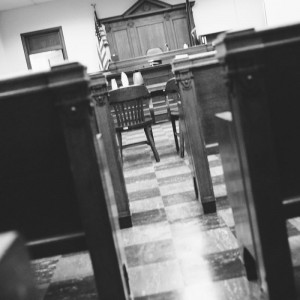Research shows that adolescents have a high propensity for engaging in risk taking activities given the significant changes in neurology, biology, and other developmental issues (e.g., social; cultural; familial) they experience. Specifically related to decision-making, science shows the pre-frontal cortex region of the brain is underdeveloped until a young person is well into their 20’s. With these findings in mind, how should this influence the way we think about key juvenile justice policies and practices like the age of juvenile jurisdiction?Read more...
Topics:
budget, Connecticut, Crime, Evidence-Based Practices, Illinois, Juvenile Court, Juvenile Justice Reform, macarthur foundation, Prevention, Public Policy, Reclaiming Futures
 The John D. and Catherine T. MacArthur Foundation recently announced the launch of the new Models for Change Resource Center Partnership. The four Resource Centers in the Partnership will be available to help provide prosecutors, defenders, judges, policymakers, advocates, probation officers, and mental health and social service agencies with much needed technical assistance, trainings, tools, and resources to help advance juvenile justice reform across the country.
The John D. and Catherine T. MacArthur Foundation recently announced the launch of the new Models for Change Resource Center Partnership. The four Resource Centers in the Partnership will be available to help provide prosecutors, defenders, judges, policymakers, advocates, probation officers, and mental health and social service agencies with much needed technical assistance, trainings, tools, and resources to help advance juvenile justice reform across the country.
The Partnership presents an exciting opportunity for many of us in the juvenile justice movement to build on this work and be a part of a positive wave of change for kids, their families, and their communities.
Expert staff is on hand at each of the Resource Centers to provide tools, training, and technical assistance in focus on areas critical to such progress. These areas, and the relevant Resource Center, are:
- The Mental Health and Juvenile Justice Collaborative for Change: A Training, Technical Assistance and Education Center, focusing on response to mental health needs;
- The National Juvenile Defender Center, focusing on stronger legal defense for indigent youth;
- The Status Offense Reform Center, focusing on interventions for youth charged with status offenses (activities that are criminalized for those under 18, e.g., truancy, running away, curfew violations); and,
- The Robert F. Kennedy National Resource Center for Juvenile Justice, focusing on coordination of practices and policies for youth involved in both the juvenile justice and child welfare systems, and enhancement of probation system practices.


 The John D. and Catherine T. MacArthur Foundation recently announced the launch of the new
The John D. and Catherine T. MacArthur Foundation recently announced the launch of the new